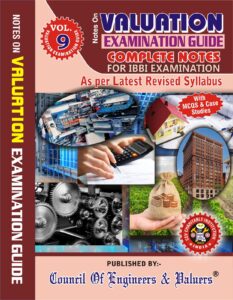Saturday Brain Storming Thought (237) 24/08/2024
NOT READILY REALISABLE ASSETS (NRRA)
Assets that are not easily convertible to cash and could take an indefinite waiting period for realization are called Not Readily Realisable Assets (NRRA)
Regulation 37A 1 of the IBBI (Liquidation Process) Regulations, 2016
It defines NRRA as those assets in the liquidation estate that could not be sold through available options and includes contingent or disputed assets and assets underlying proceedings for preferential, undervalued extortionate credit and fraudulent transactions
Realizable Assets
Realizable Assets mean an asset that can swiftly be converted into cash at a value that reasonably reflects the second-hand market value of that asset
NRRA includes
1) Contingent Assets/Receivables
2) Disputed Assets/Receivables
3) Sundry debts
4) Refunds from the Government
5) Assets underlying Preferential, Undervalued, Fraudulent or Extortionate Transactions
Points to be considered while dealing with NRRAs
1) Whether there is a valid cause of action?
2) What value is there in the cause of action?
3) What action may be taken to recover that value?
4) What is the probability of recovering that value?
5) Whether the proposed defendant might be prepared to settle
6) Whether it is in the best interests of creditors and CD as a whole
7) Whether the assignment is reasonable, fair, and appropriate
8) How the market is tested for evaluation of NRRA
9) What other alternatives are available etc
Principles must be considered by the Liquidator in the NRRA process
1) Acting in the best interest of the liquidation estate
2) Seeking maximum consideration for the assignment
3) Consulting with SCC (Stakeholders Consultation Committee)
4) Assignment through an auction or if an auction is not possible, on an arms length basis
5) Assignment shall be subject to Section 29A of the code, ie the liquidator cannot assign any NRRAs to those who are ineligible to submit a Resolution plan duringvthe CIRP (Corporate Insolvency Resolution Process)
6) Liquidator to be reasonable, fair and should act in good faith
7) NRRA may be assigned for whatever amount the market is willing to pay, thereby expediting the process

Options for Assignment
1) Absolute Assignment
The assignee shall possess all rights over the assets and any action (legal rights, remedies, and power of bringing action to an end) related thereto
2) Assignment with recompense facility
Here the Liquidator shall assign the NRRA with an initial price
Subsequently, any net discovery (ie value realized fewer costs incurred in the recovery process) of the value above the initial price would be shared between the assignor and assignee, as per terms of the agreement
In such cases, liquidators must be cautious of the terms of assignment with regard to an unsuccessful action
Offer under NRRA
Offer under NRRA means the financial offer to be submitted by potential buyers for the purchase of NRRA as per terms set out in NRRA process information documents and in accordance with the provisions of IBC Code 2016
NRRA Process Participant or Buyer
It means a person or persons who shows interest in assets of the Corporate Debtor and carry out due diligence in terms of this NRRA and shall include the Qualified Buyer or the Successful Buyer
NRRA Process Document
Document including all the appendices hereto, for the purpose of setting out the process for submission of offer and selection of successful buyer in accordance with provisions
Refundable Security deposit under NRRA
It means the deposit amount to be made by the NRRA process participant or buyer along with the submission of documents as per the annexure
Net Realisable Value of an Asset
According to financial statements
The net Realisable Value of an asset is the value of the asset if it is sold, after subtracting all the costs connected to sale
Annexures in NRRA Sales
1) Terms and conditions of Auction or E-Auction
2) Application Form (to be duly filed in, signed and stamped by the auction participant to be submitted
3) Affidavit certifying eligibility under Section 29A of IBC by the auction participant
4) Confidentiality Undertaking
5) A copy of the resolution passed by the board of directors of the auction participant (in case the auction participant is a company)
6) Earnest money deposit form
7) Description of Assets Option – A
8) Description of Assets Option – B
Advantages of Liquidation of NRRA
1) It brings to an end for an insolvent business struggling to cope, in a legal and organised manner
2) If the business is under pressure from creditors, the business can be closed and all creditors will be dealt with by the appointed insolvency practitioners
3) It removes the responsibility from the business owners and directors
4) Business entrepreneurs will no longer need to file annual accounts, VAT accounts or tax returns once the liquidation has been completed
5) Employees will be able to make a claim for any unpaid salary, holiday pay, notice pay and redundancy from the government fund, subject to some limits
6) The directors can find other employment or start another business
7) The responsibility of the directors to deal with creditors can be removed, although any creditors which have been guaranteed personally will be unaffected
8) Any country court judgments or debt recovery pressure will be lifted, not including any personal debts of the directors
9) HM Revenue and customs will no longer chase the directors for PAYE or VAT
Disadvantages to Liquidation for NRRA
1) The business will no longer be able to trade and will likely be restricted from using the same or similar company name again in the future
2) Any employees will lose their job and so will be directors
3) Shareholders may have to repay illegal dividends (not paid out of profit)
4) Overdrawn director’s loan accounts will have to be repaid
5) Suppliers and creditors will lose money
6) Any business reputation, trading licenses or other valuable assets will be lost
7) Administration may be quicker and give a better outcome for creditors
8) Any accumulated losses for tax purposes will be lost and can not be recovered
9) Any personally guaranteed debts (for example to the funding circle) will be called on
10) A business liquidation does not usually affect the credit score of the company directors, however, the information will continue to be available on companies house
11) business entrepreneurs can make furlough claims
Businesses in the liquidation of NRRA
1) If the business cannot pay the debts as they d
fall due
2) Business liabilities exceed total assets
3) The business is making losses and you do not think you can turn the situation around
4) The directors are finding it hard to cope with the stress and pressure of trading
5) The directors are worried that trading is in decline and you will be liable for wrongful trading if you can carry up
6) The directors would like someone else to deal with the creditors and all their claims
COMPILED BY:-

Er. Avinash Kulkarni
9822011051
Chartered Engineer, Govt Regd Valuer, IBBI Regd Valuer











